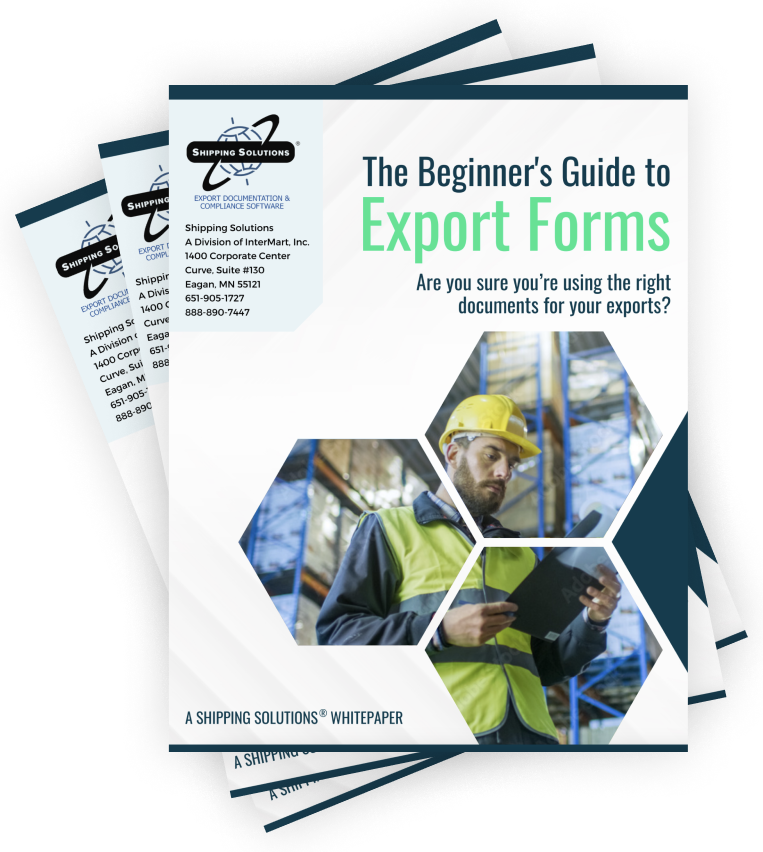The International Trade Blog Export Forms
The Challenges of Complying with Free Trade Agreements
On: April 25, 2018 | By:  David Noah |
3 min. read
David Noah |
3 min. read
 When exporters download our free export forms, I am often asked the question: What is the appropriate way to fill out a certificate of origin (COO) if the exporter isn’t the producer of the goods?
When exporters download our free export forms, I am often asked the question: What is the appropriate way to fill out a certificate of origin (COO) if the exporter isn’t the producer of the goods?
And it’s a good question. If you’re not the producer of the goods, it’s highly likely that the only way you’ll know if the goods qualify for preferential treatment accorded by a free trade agreement (FTA) is by getting a COO or a manufacturer’s affidavit from the producer of the goods. Without that assurance, you shouldn’t fill out a certificate of origin.
Think of a FTA COO like your income tax returns. By signing at the bottom of the form, you are legally certifying that the information on the form is correct, and you can prove it in the event of an audit.
The most common certificate of origin is the United States-Mexico-Canada Agreement (USMCA) Certification of Origin, so we’ll use that example here. But the same guidelines apply to all 14 free trade agreements the U.S. has entered into with 20 countries.
Complying with FTAs
If your company is selling goods to a foreign customer, you are the exporter and your supplier may be the producer of the goods. Or perhaps your supplier is a distributor and someone else is the producer—you'll have to check and see. (And remember, just because the goods are manufactured in the United States doesn't necessarily mean they qualify for reduced tariffs under the USMCA!)
If the goods do, in fact, qualify under the USMCA, your supplier (or their supplier) can fill out a USMCA Certification of Origin and enter their contact information in the Producer field (leaving the Exporter field blank). Or, they can fill out a Manufacturer's Affidavit form, also known as a Manufacturer's Certificate. (We discuss defining and using a Manufacturer’s Affidavit in detail in this article.) Essentially, the producer needs to indicate that their goods qualify under the USMCA and under which preference criteria.
Remember, participation in the USMCA is voluntary. There is no way to compel a supplier to provide a COO or Manufacturer's Affidavit, and sometimes getting one can be difficult, particularly if the producer is not an exporter themselves, isn’t familiar with export regulations, or just doesn’t think it’s a worthwhile endeavor.
There is work required to prove that an item actually qualifies under the USMCA or any other free trade agreement. If they choose to forego filling out the form, you might consider finding a different supplier who is more cooperative.
How to Create COOs More Easily
For many exporters, this isn’t the straightforward answer they were hoping for. Unfortunately, that's because it isn’t always easy to take advantage of the USMCA. But if you do determine it’s beneficial to use a COO for free trade agreements, there is a way to produce them that makes the process faster and more accurate.
Shipping Solutions software simplifies the certification process. Each time you create a certificate of origin, the information is stored within the software. It then uses the information from the pre-existing certificate to help you create new ones. You can easily copy information to a new record, change the date, and quickly review the information for accuracy in order to create your new COO. This ensures you always use the correct information when you’re filling out a form.
Shipping Solutions software saves you lots of time creating certificates of origin (and all other forms, too) and spares you costly errors. Don't just take our word for it, though. Watch a short introductory video about the Shipping Solutions software, or schedule a private online demo of the Shipping Solutions software. There's no obligation.
Like what you read? Subscribe today to the International Trade Blog to get the latest news and tips for exporters and importers delivered to your inbox.
This article was first published in April 2018 and has been updated to include current information, links and formatting.

About the Author: David Noah
As president of Shipping Solutions, I've helped thousands of exporters more efficiently create accurate export documents and stay compliant with import-export regulations. Our Shipping Solutions software eliminates redundant data entry, which allows you to create your export paperwork up to five-times faster than using templates and reduces the chances of making the types of errors that could slow down your shipments and make it more difficult to get paid. I frequently write and speak on export documentation, regulations and compliance issues.


